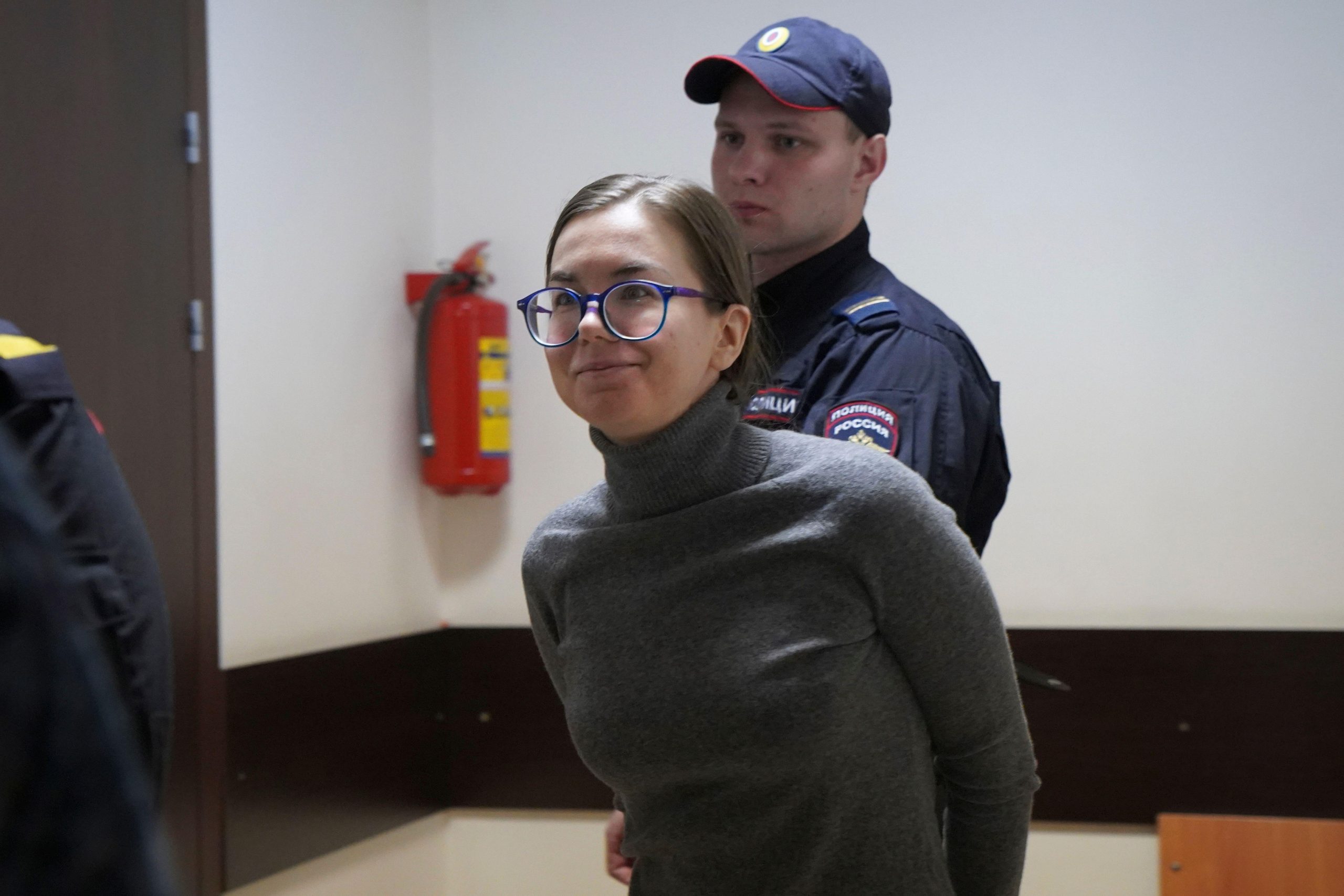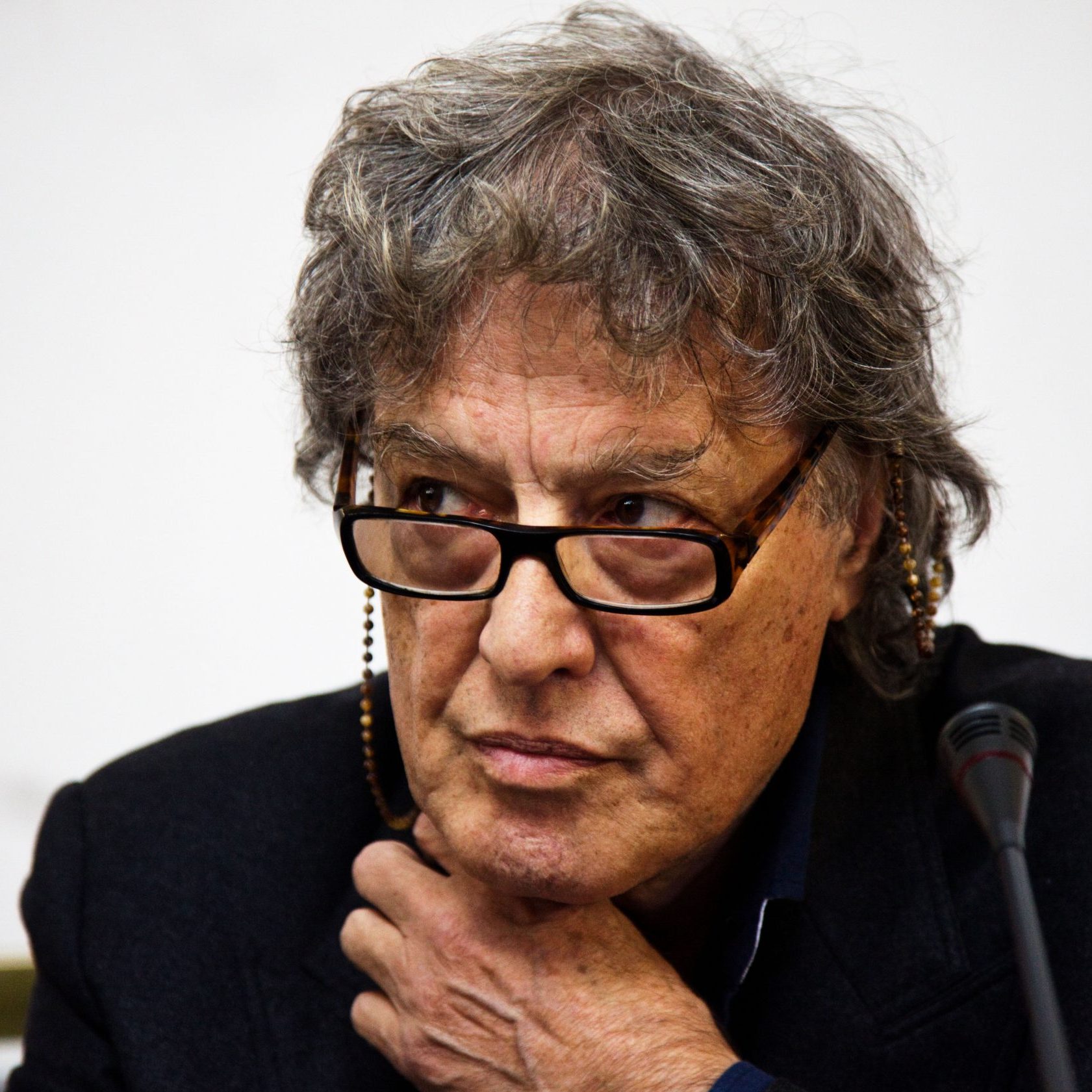There is no bigger crime than the killing of the soul. “Stop punitive psychiatry!” read the sign held by activist Oksana Osadchaya at a solo protest in the centre of Moscow in June.
The activist – who is visually impaired – was making her protest even though the tiniest acts of dissent can lead to severe punishment.
She was taken to a police station where she wasn’t allowed to meet her lawyer at first, and was released without charge only after being held for several hours.
Osadchaya’s desperate act of protest was meant to draw attention to the use of enforced psychiatric treatment in Russia against defendants in politically motivated cases.
According to independent media outlet Agentstvo, at least 33 such cases have been documented since 2023, when people arrested for opposing the war in Ukraine started being sentenced. Between 2013 and 2022 there were just 22.
A new bill, which will become law in 2025, will allow the police to gain access to the medical records of people suffering from certain mental illnesses and who are deemed by psychiatrists to be a threat to public order.
Dmitry Kutovoy, a member of Russia’s Psychiatric Association, told Index he had concerns that amending legislation could contribute to creating a system of oppression using psychiatry. He warned that the authorities might put pressure on medical workers to designate certain people as “activists, political opponents, and so on”.
One recent high-profile case was that of Viktoria Petrova, who was arrested in May 2022. She was accused of “spreading false information” about the Russian military in anti-war social media posts.
Activist Anush Panina went to support Petrova during her trial in St Petersburg.
“All of a sudden, the court announced that the hearings would be closed to the public, and sent her to a psychiatric hospital,” Panina remembered, speaking to Index from exile.
“It was outrageous and frightening.”
Panina suspects Petrova was punished for continuing to speak up while in detention and on trial. In her final statement to the court, Petrova said that Russia’s war in Ukraine was “a crime against humanity”.
Panina felt it was “convenient” for the authorities to put an end to the public trial on grounds of medical confidentiality and said that, at previous hearings, bogus experts who had analysed Petrova’s social media posts had proved to be so incompetent that people were laughing at them.
At the psychiatric unit, Petrova was brutalised by the medical staff, according to her lawyer Anastasia Pilipenko.
She was forced to undress while male nurses were watching, and after she refused to take a shower in front of them, they twisted her arms and threatened to beat her. She was tied to a bed and injected with heavy medications which left her barely able to speak for two days.
Adding that it was unclear whether the abuse had been ordered by the Kremlin, Panina said Petrova’s treatment course could be extended indefinitely, and a medical commission would convene every six months to decide whether to prolong it. In August, soon after Panina spoke with Index, Petrova was released from the psychiatric unit. She will now be observed on an outpatient basis.
Kutovoy said that cases of inhumane treatment such as Petrova’s were, at least for the moment, “isolated incidents”. He added, however, that enforced psychiatric treatment in Russia today was nevertheless “as scary as it sounds”.
“Patients’ rights aren’t really respected,” he explained, adding that heavy medications were given to them at high dosages.
Kutovoy said that, in theory, enforced treatment was ordered by the court instead of punishment. “In practice, however, it’s still punishment – just in a different form,” he said.
But considering the long prison sentences handed out to dissidents under President Vladimir Putin, enforced treatment may be the lesser evil in certain circumstances. This seems to be the case with Viktor Moskalev, another defendant in an anti-war criminal case who was sent to a psychiatric ward.
In March 2023, he was arrested for “spreading false information” about the Russian army after making two comments about war crimes committed in Ukraine on the e-xecutive.ru website.
Moskalev’s lawyer, Mikhail Biryukov, told Index that in 2005, his client had been diagnosed with a mental illness in a private clinic. He was now in remission, and “has a prospect of being set free [from the psychiatric unit] earlier than if he were in prison”.
Abuse of psychiatry to persecute and intimidate state critics was a popular practice in the Soviet Union. Dissident Alexander Skobov was condemned to compulsory psychiatric treatment twice, in the 1970s and the 1980s.
In May this year, he was sent to a psychiatric unit again, for “examination”. He is accused of posting messages justifying terrorism on social media, as well as of taking part in a terrorist organisation, and could face up to 22 years in jail.
“The repressive machine is looking for new methods of persecution,” Kutovoy said. “It’s just the way it works.”
According to Kutovoy, this trend points towards a punitive mechanism of using psychiatry being in demand by the authorities. He said there had been an increase in the number of involuntary hospitalisations of arrested political protesters.
“A person is arrested holding a sign, is taken to a police station, and a psychiatric team is called,” he explained. “Then the psychiatrists have to decide whether there is a need for involuntary hospitalisation.”
If they conclude that’s the case – and, a few days later, decide that this measure must be maintained – the court can order long-term compulsory treatment.
Kutovoy emphasised that in many cases, psychiatrists refused to send dissidents to hospital against their will. Alexey Sokirko, for example, was arrested in July for wearing a T-shirt which read: “I’m against Putin”. Police officers called a psychiatric team after Sokirko asked them whether an “I’m against Stalin” tag would be allowed. In the end, the doctors concluded that there was no need for involuntary hospitalisation.
Kutovoy said he wished he could speak out more openly on the issue of punitive psychiatry. However, he added: “In Russia today, it’s impossible to make a statement which is not in line with the political agenda [of the state]. And there is an obvious connection between cases of abuse of psychiatric care and the political agenda.”





